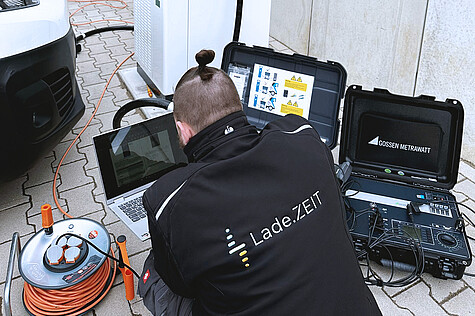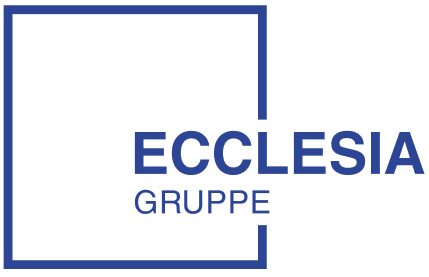
How to make the switch to alternative drives
Does it make sense to convert my fleet? How do I realize cost savings in the process? And which alternative drives are best suited to the company's mobility needs? Fleet managers have to deal with these and other technical questions when considering converting their fleets. Whether it's vehicle selection, available subsidies or individual charging solutions, the Ecclesia Mobility Competence Center is a competent partner for smart fleet management and offers a holistic concept for converting fleets to alternative drives in its motor vehicle ecosystem.
Electric mobility made easy
“We work closely with specialized partners such as Lade.ZEIT, who have in-depth expertise in their field,” explains Burkhard Pape, an expert at the Ecclesia Mobility Competence Center. Lade.ZEIT develops charging solutions that are precisely tailored to parking facilities and real estate. To do this, the experts first look at the conditions on site in order to create an initial rough concept for the individual charging solution. The next step is to prepare an offer with a corresponding detailed concept, taking into account current funding opportunities. The next step is implementation, with Lade.ZEIT supporting deas customers from the installation of the hardware components to the awarding of the individual contracts, construction supervision and final acceptance. If requested, the e-mobility expert can also take over monitoring, billing for charging processes and maintenance of the charging infrastructure hardware. Thanks to further cooperation partners, the consulting services also cover the topic of billing and the operation of public charging stations, which companies and institutions can use to generate income.
“Since many companies still have reservations about electric mobility, we also offer our customers the opportunity to familiarize themselves with the driving characteristics of an e-mobile before they purchase one,” says Burkhard Pape. To this end, Ecclesia Mobility has launched the FINN AutoAbo partner program, which makes the desired models available in the shortest possible time and allows them to be tested for a flexible period. In the process, deas customers receive a cost-effective complete package that covers all costs.
Green logistics of the future
In view of the rising costs of fossil fuels and the requirement to sustainably reduce CO2 emissions, there is no way around alternative drives in the commercial vehicle sector. However, transport companies and logistics providers still have many uncertainties regarding the optimal drive variant, the energy or fuel supply and savings potential. In this area, Ecclesia Mobility is working together with the Berlin logistics consultancy Green Logistics Enabler (GLE), which advises freight forwarders and industrial companies on the transformation of truck fleets to alternative drives such as electric, biogas and hydrogen. The holistic approach involves three stages: the first step is to conduct a precise analysis of the fleet's current situation and requirements based on market studies for alternative drive technology. In the second stage, GLE works with the customer to develop customized, sustainable transport solutions to prepare the truck fleet and distribution logistics for future requirements. The third stage involves the gradual conversion of the vehicle fleet to low-emission or zero-emission vehicles – often in conjunction with an optimization of the transport routes. Burkhard Pape: “Together with our partners, we have put together an attractive package for our customers that makes it much easier for them to switch to alternative drives, as they are supported by experienced experts throughout the entire process.”
If you would also like to make your fleet fit for the future, our experts are on hand to help. Benefit from our expertise, we will be happy to advise you!
i deas editorial team
